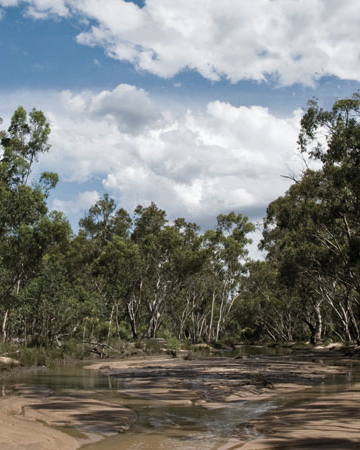Santos' Pilliga plans advanced
 Courts have quashed questions over the legality of Santos’ water treatment plant in the Pilliga forest.
Courts have quashed questions over the legality of Santos’ water treatment plant in the Pilliga forest.
The latest appeal has been rejected in the long legal battle between People for the Plains and the Santos Leewood coal seam gas facility.
The conservationists attempted to argue that the Leewood coal seam gas water treatment plant was unlawful because it did not have an Environmental Impact Statement (EIS) or conduct public consultation before moving ahead.
Petroleum exploration developments in NSW are not required to submit an EIS, which People for the Plains says is a massive gap.
They want the NSW Government to re-classify the Leewood water treatment plant as a “waste or resource management facility”, making it an ‘independent project’.
People for the Plains spokesperson Sally Hunter says the laws need to be stronger.
“We’re very disappointed with this outcome,” Ms Hunter told reporters.
“If the law says that a gas company can build a 500-million litre coal seam gas water treatment plant without doing an Environmental Impact Statement, then we’re afraid the law is not strong enough to protect our community, or the environment.
“This is a large-scale industrial facility in our local environment. Despite this legal outcome, we still believe the local community should have the right to have a say.
“The Leewood wastewater storage is connected to the much broader 850-well Narrabri Gas Project proposed by Santos for the Pilliga forest.”
People for the Plains say they will continue fighting.
“With the Environmental Impact Statement now on public exhibition, the community will be redoubling its efforts to protect the Narrabri region from dangerous coal seam gas,” Ms Hunter said.
Santos welcomed the decision.
“This reverse osmosis plant is similar to those used across the world and will be used to treat salty ground water produced by Santos’ exploration and appraisal operations to a very high standard,” the company said in a statement.








 Print
Print